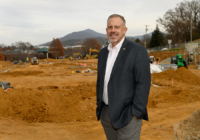Roanoke Valley confronts hotel room shortage
As a trio of hotels shuttered in the city over the past several years, the number of rooms available in Roanoke to travelers has shrunk. Two hotels — the Blue Ridge Hotel & Conference Center, which closed in late 2019, and a Days Inn that shuttered in 2022 — were replaced by multifamily developments. And […]
Revamping Vinton
Vinton has been reinventing itself over the past decade, using public-private partnerships to convert old, vacant buildings into bustling modern developments. Now that the small eastern Roanoke County town has attracted new residents and visitors, the town’s new focus is on improving its transportation, walkability and infrastructure. “We really had a renaissance the last five […]
A Roanoke reawakening
The Roanoke area is anything but sleepy when it comes to economic development these days. In fact, “the opportunity for Roanoke is greater now than it has been in quite some time,” says John Hull, executive director of the Roanoke Regional Partnership, a public-private joint venture that works to attract new business to the region. […]
Vinton, Warsaw, Wytheville receive industrial revitalization funding
The towns of Vinton, Warsaw and Wytheville will receive a total of more than $1.4 million in state industrial revitalization fund (IRF) grants, Gov. Ralph Northam announced Friday. IRF funding provides gap financing for redevelopment projects that can lead to long-term employment opportunities. “This funding will not only help transform deteriorating or unused structures, it […]














